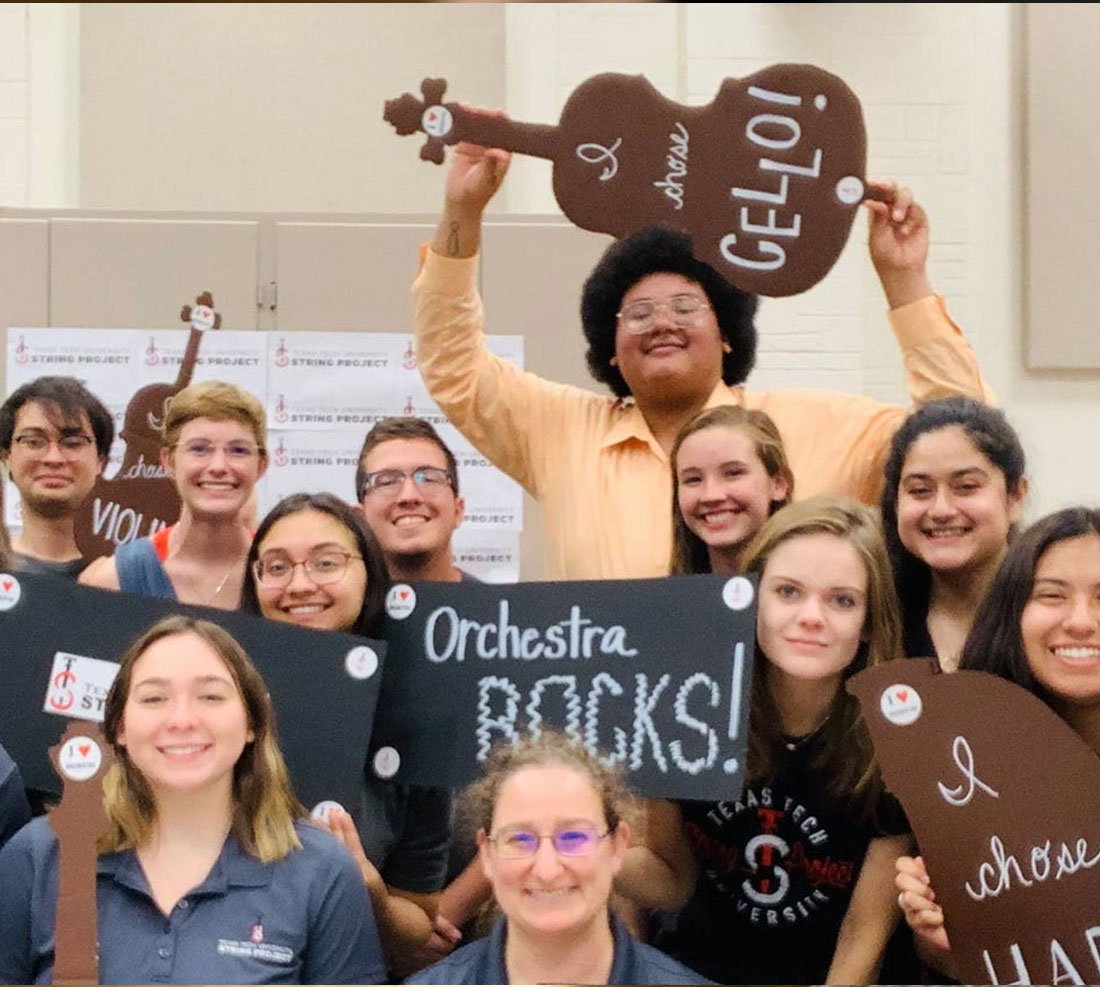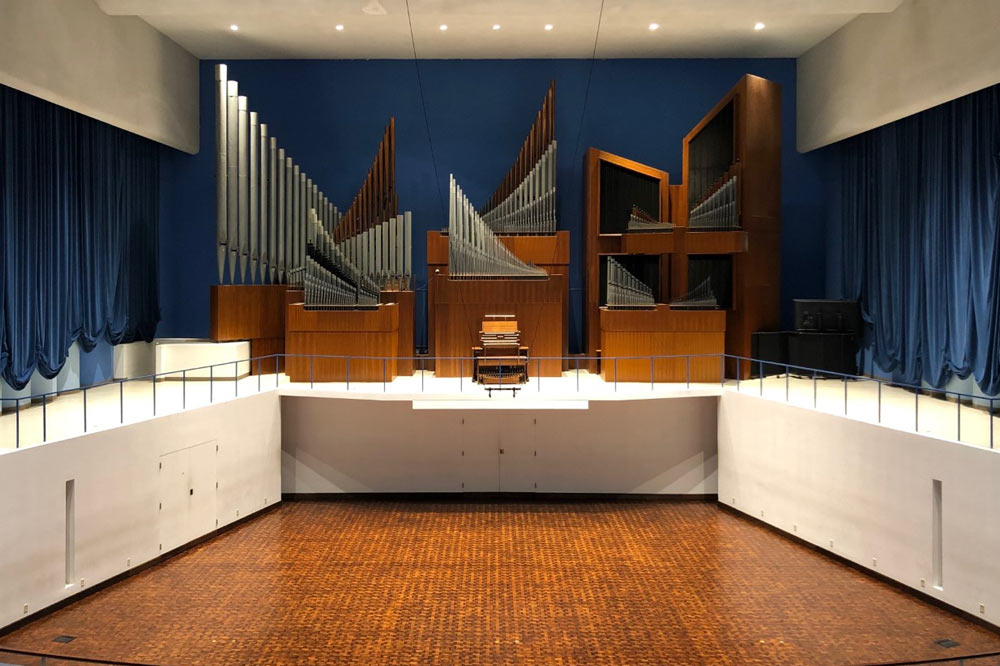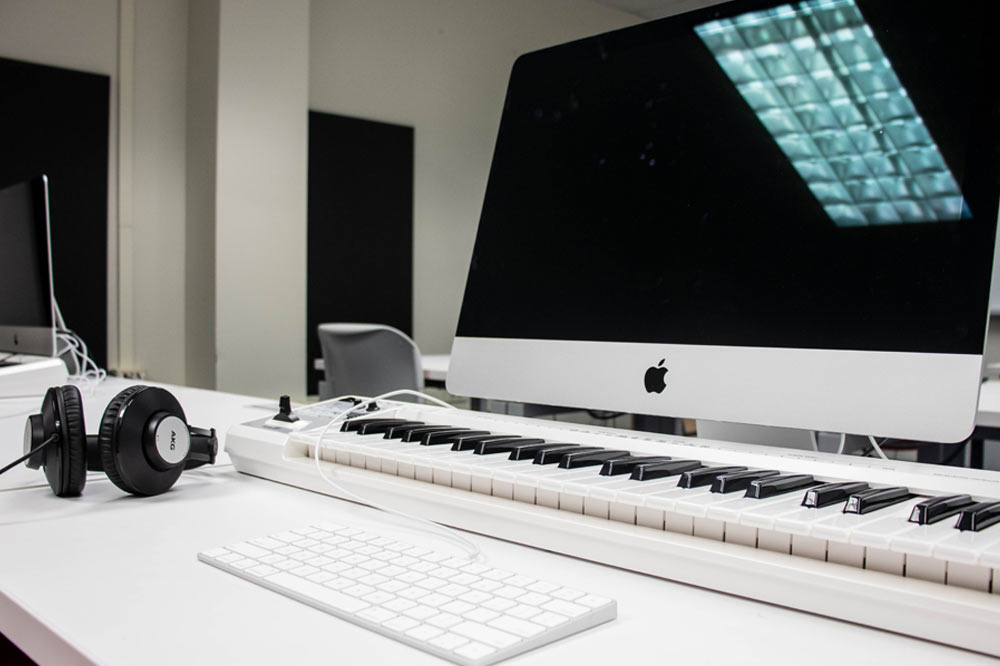Renowned Faculty
Study with locally, nationally, and internationally renowned faculty members who are established music educators, scholars, conductors, and clinicians.

The Bachelor of Music in Music Education degree replaces the degree that is formerly known as Bachelor of Music in Music - Teacher Certification.
Earning a Bachelor of Music in Music Education prepares undergraduate students and individuals who are seeking credentials to teach music in the schools to effectively teach band, choral, orchestra, and classroom general music in pre-kindergarten, elementary, middle, junior high, and senior high schools.
In addition to the coursework required by the School of Music to fulfill the Bachelor of Music in Music Education degree, students wishing to be certified to teach in the State of Texas must fulfill all requirements of the College of Education, the Texas Education Agency, and the State of Texas. The coursework required for Teacher Certification is listed in the University Catalog section of the College of Education and in the Degree Guide Sheets included within the undergraduate handbook.
There are four different tracks within the Bachelor of Music in Music Education degree program: Keyboard, Strings, Voice/Choral, and Winds/Brass/Percussion. Each track provides students with specific opportunities for specialized instruction within the relevant track. Additional opportunities for learning are provided in the areas represented outside the selected track in order to thoroughly prepare the student for teaching music learners in the schools.
The Music Education program at Texas Tech University is one of the most highly regarded programs in the state of Texas. We have faculty members who have taught in the private and/or public schools, have teaching experiences in the areas of early childhood, elementary, middle school, and high school music, and have taught all over the state, the nation, and in various parts of the world. Our faculty members are also published scholars and authors who frequently present at state, national, and international music education conferences.
While enrolled in our program, undergraduate students have multiple opportunities to develop the skill and art of teaching in a variety of settings. Our program is structured in a way that enables students to practice teaching on-campus with their peers and in the schools with elementary, middle school, and high school students. The in-school teaching experiences occur under the supervision of an experienced teacher (i.e., Cooperating Teacher) and a university professor/satellite supervisor (i.e., University Supervisor).
On average, our music education area graduates approximately 45-50 preservice teachers each academic year. Nearly 100% of these graduates proceed to have successful careers as music educators, music performers, music technicians, and/or choose to pursue graduate studies in a relevant field within the discipline of music.

Study with locally, nationally, and internationally renowned faculty members who are established music educators, scholars, conductors, and clinicians.

Develop the skill and art of teaching in a variety of music settings. Undergraduate students will have many opportunities to practice teaching on the university campus and in the local schools.

Successfully complete the undergraduate program in music education with an all-level teaching certificate in order to become an effective choral, band, elementary, and/or strings music practitioner on the pre-kindergarten, elementary, middle school, and high school levels.
The Bachelor of Music in Music Education program provides students with many opportunities to practice and develop their teaching skills. Several courses within the curriculum provide peer-teaching experiences that occur on campus. Additional courses within the curriculum provide in-school teaching experiences of students in grades EC-12 in schools that represent rural, urban, and suburban communities. These experiences contribute to the development of our students' levels of educatorship and enables them to be effective music pedagogues in a variety of settings.
The Bachelor of Music in Music Education program also provides students with several opportunities for music-making with their colleagues under the direction of School of Music professors with varying areas of expertise. Students perform with large ensembles (e.g., Goin' Band, Symphonic Wind Ensemble, University Choir, University Symphony Orchestra), small ensembles, and soloistically. All of these experiences contribute positively to the development of our students' levels of musicianship, which positively affects their ability to be successful in the music classroom.
.
Students in our Bachelor of Music in Music Education program have access to all spaces within the School of Music, including Hemmle Hall, the Choral Room, the Band Hall, practice rooms, and the various classrooms throughout the building. Students also have access to the technology that is present in the academic classrooms and rehearsal spaces, as well as the pianos within the practice rooms. As a part of the music education curriculum, students will make frequent use of different learning platforms/software programs (e.g., MusicFirst, Google Drive, TEAMS, Zoom). During the student teaching semester, preservice teachers will also be able to borrow an iPad for the purposes of recording their teaching and taking observation notes during the student teaching experience.

Access to all spaces within the School of Music, including Hemmle Hall, the Choral Room, the Band Hall, practice rooms, and the academic classrooms.

Students make frequent use of different learning platforms/software programs (e.g., MusicFirst, Noteflight, Google Drive).
We welcome students from many diverse populations and experiences. Entering first-year students complete an Introduction to Music Teaching course, which addresses relevant topics pertaining to the teaching and learning of music in different instructional contexts.
In order to apply for admission to the School of Music, follow these instructions.
Once students have been admitted to the program and are pursuing the Bachelor of Music in Music Education, the following steps should be taken to earn a Texas Teaching Certificate:
Individuals who have earned Bachelor of Music degrees in Music Education with a Texas Teaching Certificate are currently contributing to the field of music education in the following manners: teaching music in the state of Texas, across the nation, and in varied parts of the world; presenting at state, national, and international conventions; conducting honor ensembles at professional music conferences; and conducting concert and marching ensembles at state adjudicated events.